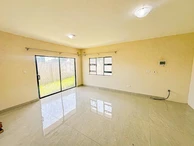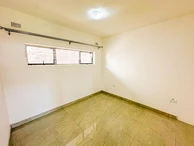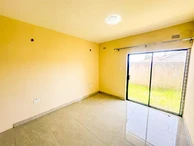 Continue with Facebook
Continue with Facebook
 Continue with Email
Continue with Email
 Continue with Facebook
Continue with Facebook
 Continue with Email
Continue with Email
 Sign up with Facebook
Sign up with Facebook
 Change filters
Change filters
 Requests
Requests




 2
60 m²
2
60 m²

 1
1
 1
40 m²
1
40 m²

 3
3
 1
150 m²
1
150 m²

 3
3
 2
90 m²
2
90 m²

 36
36
 24
1,500 m²
24
1,500 m²

 3
3
 3
400 m²
3
400 m²

 2
2
 1
120 m²
1
120 m²

 3
3
 3
220 m²
3
220 m²
Garden flats for sale in Harare West, Harare, offer affordable housing options with an average price of $120,000. These properties typically have a median land area of 200 ㎡ and a median building size of about 150 ㎡, with some larger homes reaching up to 1,500 ㎡. Prices start from USD 45,000, making this area accessible for many buyers.
Many garden flats in this area feature practical amenities such as tiled floors, fitted kitchens, boreholes, water tanks, and walled compounds, providing comfort and convenience. These features support a self-sufficient lifestyle, which is attractive for families and working professionals alike.
Harare West is a diverse neighborhood combining residential, commercial, and industrial zones. It offers good public transport links for easy commuting to central Harare and surrounding suburbs. Key local attractions include Zimbabwe Grounds and the National Sports Stadium, while Mbare Musika Market serves as a major shopping hub. The area also has several schools and access to Parirenyatwa Hospital, making it suitable for families seeking affordable homes with essential amenities nearby.

 3
3
 3
150 m²
3
150 m²

 3
3
 2
100 m²
2
100 m²

 2
2
 1
90 m²
1
90 m²

 3
3
 2
120 m²
2
120 m²

 1
1
 1
50 m²
1
50 m²

 2
2
 1
65 m²
1
65 m²

| Property Size | Avg. price |
|---|---|
| 1 bedroom (View 10 properties) | $45,000 |
| 2 bedroom (View 47 properties) | $77,000 |
| 3 bedroom (View 38 properties) | $160,000 |
| 4 bedroom (View 29 properties) | $215,000 |
| 5+ bedroom (View 6 properties) | $350,000 |
Navigate Zimbabwe’s property market with confidence by mastering the high-stakes differences between freehold and leasehold ownership. Our 2026 analysis details
Stop letting your spare rooms gather dust and start letting them pay your mortgage. House hacking is the 2026 blueprint for affordable homeownership in Zimbabwe
Don’t let your property or car go "underwater" just as the market shifts. Master the art of navigating negative equity in Zimbabwe’s 2026 economy by balancing
Build long-term equity with a customizable condo or prioritize flexibility in a professionally managed apartment. Compare 2026 ownership costs
Duplexes offer the villa lifestyle with a 7–10% rental yield in Harare’s 2026 market. Discover why these multi-level homes are the smarter, spacious alternative